Stone Crushers are essential machines in various industries, including mining, construction, and recycling. They are used to break down large materials into smaller, manageable sizes. However, one of the significant issues associated with crushers is excessive noise generation. This article aims to explore the causes of excessive noise in stone crushers and provide effective solutions to mitigate this problem.
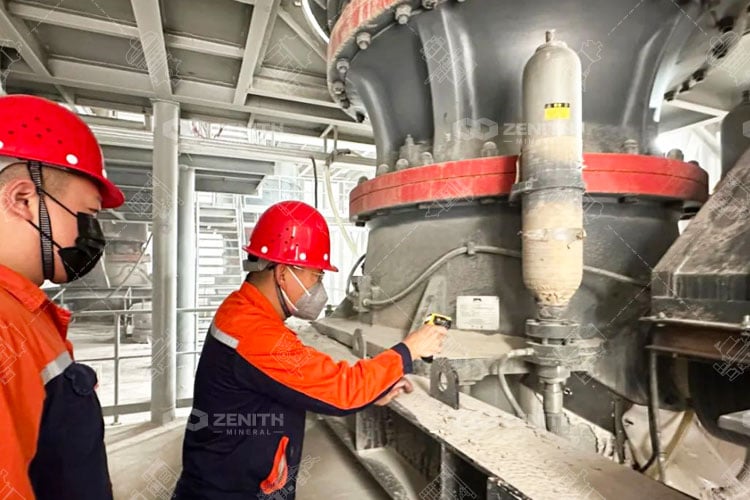
Noise in stone crushers can be defined as any unwanted sound produced during the operation of the machine. It can originate from various sources, including mechanical vibrations, material impact, and airflow. Excessive noise not only poses health risks to workers but can also lead to regulatory compliance issues and increased operational costs.
Problem Analysis: Over time, key components of the crusher, such as hammers, liners, bearings, and gears, can experience wear and aging. This leads to inefficient operation and can cause abnormal noise due to improper alignment or friction between parts.
Solution: Implement a regular maintenance schedule to inspect wear on critical components. Replace damaged or worn-out parts promptly to restore the machine’s efficiency and reduce noise levels.
Problem Analysis: If a stone crusher is not installed properly, or if the foundation is unstable or uneven, vibrations and excessive noise are generated during operation. Improper mounting or alignment can amplify noise during crushing.
Solution: Ensure that the crusher is installed on a solid, level foundation. Use vibration isolation pads or damping devices to minimize vibrations and reduce noise transmission.
Problem Analysis: The hardness, moisture content, or size distribution of the materials being processed can significantly affect the crusher’s operation. When the materials are too hard or unevenly sized, the machine is forced to operate under excessive load, generating more noise.
Solution: Optimize material properties, ensuring the crusher operates within its designed capacity. Feed size should be managed carefully, and materials should be appropriately sized and pre-processed to avoid overloading the machine.
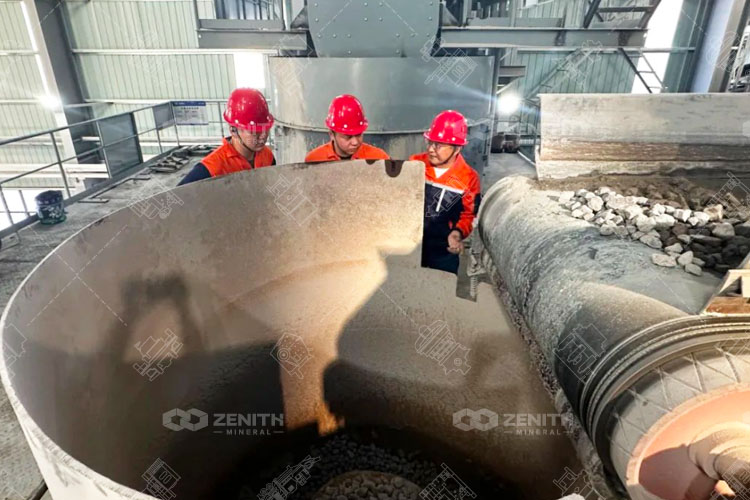
Problem Analysis: Lack of adequate lubrication in the crusher’s bearings, gears, or other moving parts increases friction and results in excessive wear and noise. Insufficient lubrication can also cause parts to overheat, leading to further damage.
Solution: Regularly check and replenish the lubrication oil. Proper lubrication will reduce friction, prevent overheating, and minimize noise, ensuring smoother machine operation.
Problem Analysis: Some crushers may have inherent design flaws, such as poor sealing or inadequate material strength in certain components. These design deficiencies can lead to higher operational noise levels.
Solution: Choose stone crushers with high-quality designs and materials that incorporate noise-reducing features. If design upgrades are not possible, consider adding soundproofing elements such as enclosures or acoustic barriers.
Develop a detailed maintenance plan and perform regular inspections of all critical components. This includes checking for wear and tear, lubricating moving parts, and ensuring that components are properly aligned. Timely replacement of worn-out parts helps reduce unnecessary noise.
Ensure that the stone crusher is installed on a stable and level foundation. Utilize vibration isolation pads and damping systems to absorb vibrations and reduce noise during operation. Proper alignment of the crusher components is also crucial for reducing operational noise.
Control the material characteristics such as hardness, moisture, and size distribution. It is essential to avoid overloading the crusher by ensuring the materials fed into the machine match its capacity. Pre-processing materials to achieve optimal feed size can significantly reduce operational strain and, consequently, noise.
Establish a routine to inspect and replenish lubrication in all necessary components. Ensure that all bearings, gears, and moving parts receive proper lubrication to reduce friction, wear, and the resultant noise.
Install soundproof enclosures or acoustic barriers around the crusher to limit noise propagation. These barriers can significantly lower the noise emitted during crushing operations, reducing exposure to workers and the surrounding environment.
Consider upgrading to crushers designed with low-noise technology. These machines typically utilize advanced materials and designs that can effectively reduce noise without compromising performance.
Provide comprehensive training for operators so that they can identify normal operating sounds and quickly detect any unusual noise. Early identification of abnormal noise can prevent damage and allow for timely maintenance.
Use professional noise monitoring equipment to measure and assess the noise levels produced by the crusher. Regular noise level checks ensure that they remain within acceptable limits and help track the effectiveness of noise reduction measures.
Consider setting up noise barriers or green belts around the crusher area to reduce the environmental impact of excessive noise. Greenery and soundproof barriers can significantly reduce noise levels in the surrounding area and improve the overall work environment.
Excessive noise in stone crushers is a common issue caused by equipment wear, improper installation, material characteristics, insufficient lubrication, and design flaws. By adopting regular maintenance practices, optimizing equipment installation, controlling material characteristics, improving lubrication management, and installing soundproofing measures, the noise generated by crushers can be significantly reduced.
These solutions will not only help mitigate the noise problem but also improve the efficiency and longevity of the equipment. Furthermore, providing employee training, conducting noise monitoring, and optimizing the work environment are critical in ensuring a safer and quieter workplace.
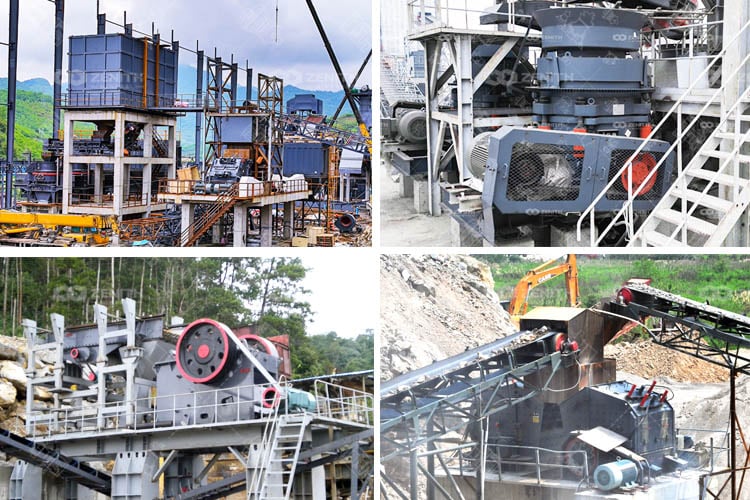
we will delve into the intricacies of stone crusher performance optimization, examining the critical factors that must be considered to ensure these machines operate at the peak of their capabilities.
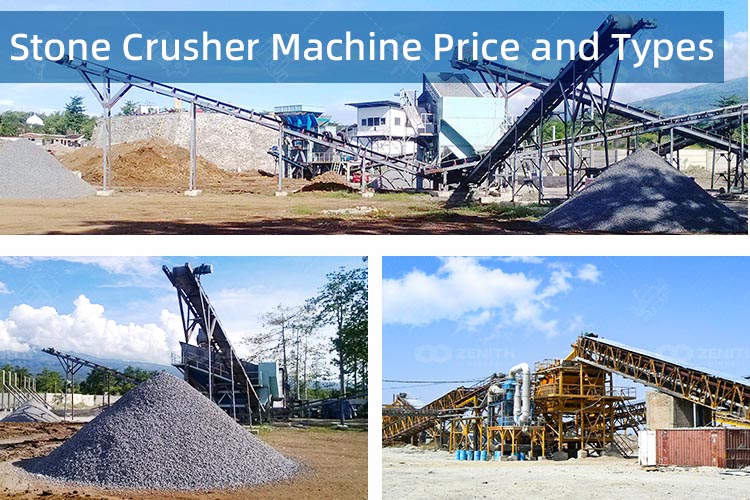
There are many types of stone crusher machines on the market. In this article, we will introduce the types and price of the stone crusher and how to select the most suitable one.
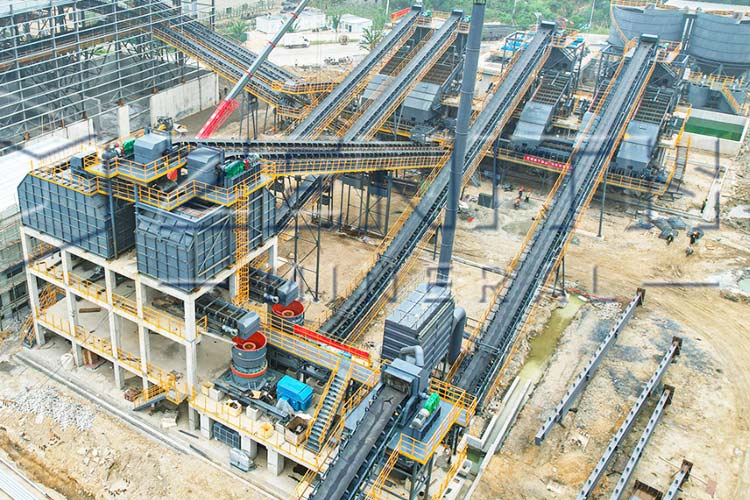
Stone crushers are machines designed to reduce large rocks into smaller rocks, gravel, or rock dust. They are commonly used in the mining, construction, and recycling industries.
Fill your requirements here, and we'll send the custmized solution and quotation to you by the reserved contact information.